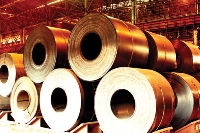 Tata Steel and a consortium of five public sector units are buying time, even as the world's third-largest mining company, Rio Tinto, offered $3.9 billion on Thursday for Australia's Riversdale Mining.
Tata Steel and a consortium of five public sector units are buying time, even as the world's third-largest mining company, Rio Tinto, offered $3.9 billion on Thursday for Australia's Riversdale Mining.The Tata Steel nominee on the board of Riversdale, Narendra Kumar Misra, abstained from voting on a resolution to announce and recommend the offer to shareholders.
A Tata Steel spokesperson said, "We have noted the development, but at this point in time, have no comments to offer."
| RESOURCE RIVALRY |
|
International Coal Ventures -- comprising state-run NTPC, Steel Authority of India, NMDC, Coal India and Rashtriya Ispat Nigam -- has appointed Citigroup to work out a valuation for Riversdale.
"If the valuation is less than $3.9 billion, we will not bid," said the chairman of one of the PSUs in ICVL.
Rio's bid is higher than the indicative bid of $3.5 billion, probably because it means gaining a foothold in Mozambique, the future of metallurgical coal. Coal resources identified by Riversdale in Mozambique now total a massive 13 billion tonnes.
Tata Steel has a stake in one of the Mozambique assets, apart from being the largest shareholder in the holding company with a 24 per cent stake.
Tata Steel's role is crucial for the success of Rio's offer, as it will have to be backed by at least one of its major shareholders: Tata Steel or CSN, which has a 15.6 per cent stake (but no board representation).
Passport Capital of the US, another major shareholder, has committed an unspecified number of its shares to a pre-bid agreement that gives Rio over 14.9
per cent of Riversdale stock.
Rio's last big acquisition was in 2007, when it purchased Alcan. Riversdale will be a key acquisition for the global resource major, as coking coal prices are surging as a result of supply constraints.
The market, hence, is expecting a bidding war for Riversdale.
The names of ArcelorMittal and Xstrata are also doing the rounds. Sources following the developments say there could be a Chinese counter offer.
Tata Steel may also be waiting to see how the bidding war plays out.
However, its watertight off-take agreement could prevent it from making a counterbid. Tata Steel Global Minerals Holdings has a 35 per cent stake in Mozambique's Benga project, combined with an off-take agreement for 40 per cent of its coking coal.
"This is clearly a Catch-22 situation for Tata Steel. With a watertight off-take agreement, an exit now means $1 billion in cash, and that's handy when Tata Steel is trying to deleverage its balance sheet further. But on the other hand, many in Tata believe staying on will mean more economic value accretion.
"The true upside in economic value is at the top, as coal's value will only go uphill, which is why Tata hiked its stake from 7.29 per cent in 2007 to 24 per cent via the creeping acquisition route," explained a person following the development closely.
The scramble for securing coal assets is spurred by the huge volatility in prices. Commodity analysts expect coking coal prices to hit $350 a tonne in 2011, which would be a whopping increase over the new January contract prices of $225 a tonne.
Apart from the supply constraints, the oligopolistic nature of the industry has been pushing up prices.






